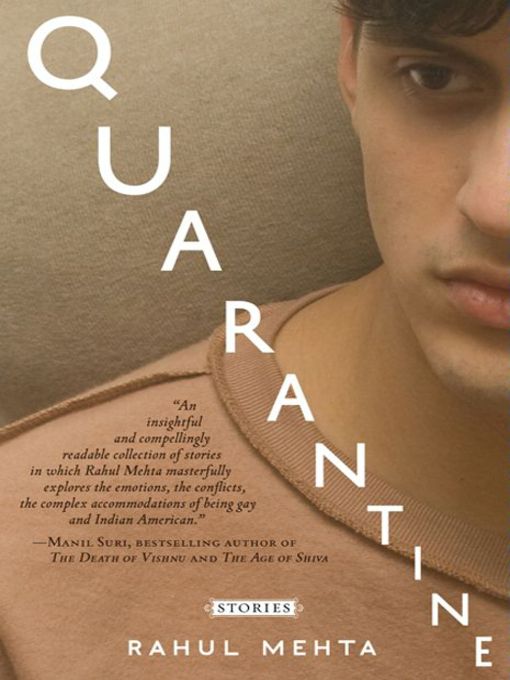
Quarantine
Stories
کتاب های مرتبط
- اطلاعات
- نقد و بررسی
- دیدگاه کاربران
نقد و بررسی

March 14, 2011
Polished if placid, the stories in Mehta's debut often revolve around artsy, educated protagonists trying to navigate young adulthood as gay Indian-American men. In the title story, a young Indian-American man takes his boyfriend, Jeremy, home to West Virginia to meet his parents and his overbearing grandfather, Bapuji. The narrator resents having to hide the fact that he is in a gay relationship from his grandfather, and has conflicted feelings when the old man hits it off with Jeremy. Another displaced grandparent appears in "Citizen," where 80-something Ranjan bombs her U.S. citizenship exam despite weeks of lessons from her aimless grandson, Pradeep. While the older generation struggles to adjust to life in the States, the first- or second-generation protagonists encounter their own identity crises as well. In "Floating," Darnell and his boyfriend, Sid, take a trip to India, where they juggle the pain of homophobia and the guilt of privilege after having been scammed. Guilt plays out more flamboyantly in "The Cure": having learned that his immigrant parents have become millionaires, the narrator develops a habit of burning moneyâliterally. While ethnic and sexual identity are central to Mehta's protagonists, the book is most successful in its treatment of postgraduate angst, love, and rejection, and the torment of artistic ambition.

April 15, 2011
Debut short-story collection explores the lives of gay Indian-American men caught between multiple cultures.
The quarantine in Mehta's eponymous story is not a medical situation but a kind of forced cultural dislocation imposed, as quarantines often are, for the benefit of those secreted away. Typically it's the elderly parents of Indian immigrants who must endure a painful relocation to move in with their adult children who are bound by competing feelings of duty and guilt. Trapped in a country they don't understand, they lash out at their reluctant caretakers. The stories are told by fully assimilated American-born grandchildren who sometimes know less about India then their grandparents know about America. That many of the stories are set in West Virginia and all of the narrators are gay makes for a unique worldview. "Citizen," a sweet story about a young man's attempts to help his senile grandmother prepare for American citizenship, displays a comic touch, whereas "Quarantine" and "A Better Life," which open and close the collection, are considerably darker. Mehta is also interested in same-sex relationships, especially when they are on the verge of failing. These stories of couples on life support offer an abundance of bittersweet moments. Not only must these young men navigate the minefields that all people in love must meander through, but they must also deal with the strain of explaining their homosexuality to parents who grew up in cultures far less permissive than those in which they have raised their children. A mother's pragmatic question—"So who does the cooking and cleaning?"—contains as many layers as an onion.
A rich study of family ties, romantic failings and cultural disconnection told in crisp, clean prose.
(COPYRIGHT (2011) KIRKUS REVIEWS/NIELSEN BUSINESS MEDIA, INC. ALL RIGHTS RESERVED.)

May 1, 2011
In nine short stories, Mehta writes about immigrants and families from India. With one important exception, the central characters are U.S.-born and caught between the rigidity of their parents culture and the fluidity of American mores. There are great realistic relationship stories here, of meetings, breakups, and the times in between. The title story illustrates the cruelty between generations when a young man brings his lover home to West Virginia, where they are asked to hide their homosexuality from grandfather Bapuji. Several stories feature the same family in West Virginia and the Indian grandmother who spends three months with each of her four children. Citizen, a story from this grandmothers point of view, is written in a manner that shows Mehtas care for this lovely, confused woman, whose children have removed her from her natural surroundings to keep her safe. Libraries may buy this for the ethnic content, but patrons will read it because of the promise evidenced by this young writer.(Reprinted with permission of Booklist, copyright 2011, American Library Association.)

























دیدگاه کاربران